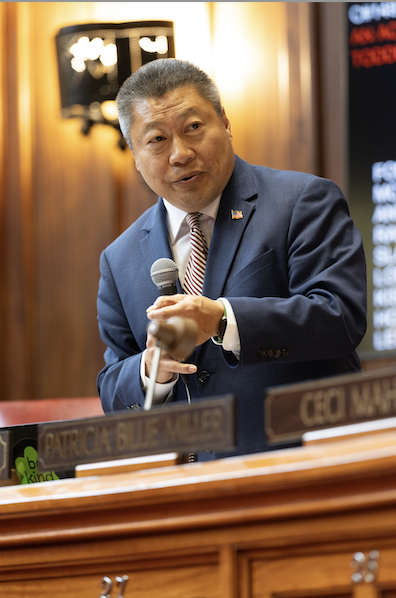
HARTFORD, CT – The state Senate and state House of Representatives voted today to spend an additional $284 million on Medicaid in a compromise that exceeded the state’s spending cap for fiscal year ending June 30, 2025 and paved the way to craft a new, two-year state budget.
Senator Tony Hwang (R-Fairfield) voted no on House Bill 6863, a deficiency spending bill that bypassed traditional legislative scrutiny and allocated funds above the state’s spending cap to address a shortfall in the Medicaid program.
“We must fund essential Medicaid services for our most vulnerable residents,” said Senator Hwang. “But we must do so transparently, sustainably, and with full accountability to taxpayers.”
Senator Hwang emphasized that Medicaid funding is essential to protecting seniors, children, and low-income individuals. But he argued that responsible funding must be paired with strategic planning and efficiency - not last-minute spending maneuvers that disregard structural reform.
“Compassion and accountability are not mutually exclusive,” Hwang said. “We can serve our most at-risk residents effectively while still respecting the taxpayers who fund these programs.”
Senator Hwang expressed deep frustration over the latest example of expedited one-party Democratic control that has effectively undermined the legislative process, limiting bipartisan engagement and public accountability.
“Once again, the majority party rushed a major financial decision through the legislature under the guise of an ‘emergency,’” Hwang said. “This habit undermines public trust and shuts out the deliberative process needed for sound budgeting.”
The deficiency bill, coupled with an emergency declaration from Governor Lamont, appropriated emergency funding to cover projected shortfalls in Medicaid expenditures through the end of fiscal year 2025. But Hwang questioned the need to override Connecticut’s statutorily mandated fiscal guardrails - critical spending caps enacted to ensure long-term budget stability - based on “anticipated” federal cuts that have not yet materialized.
Citing the state’s projected budget trajectory, Hwang urged legislative leaders to shift from reactive budget band-aids to proactive, sustainable planning as the 2025 legislative session draws to a close.
“Budgets are about values, priorities and vision,” Hwang said. “We must begin developing the next biennial budget now - with a focus on transparency, discipline, and protecting both our fiscal health and our social safety net. Connecticut deserves nothing less.”
Senator Hwang reaffirmed his commitment to fiscal policies that are compassionate, strategic, and sustainable, and called on fellow lawmakers to uphold Connecticut’s fiscal guardrails as a sign of respect to both vulnerable residents and responsible taxpayers.